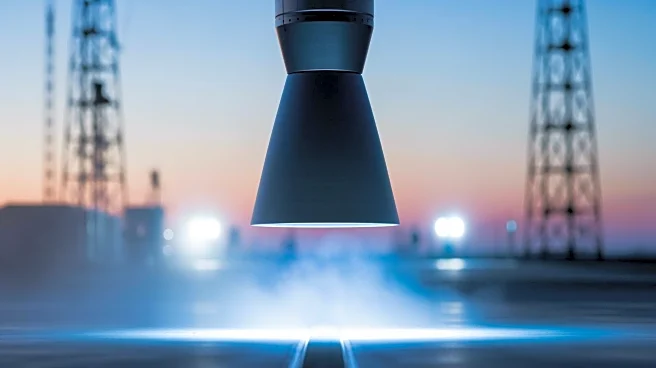What's Happening?
Thales Alenia Space has signed multiple contracts to establish a consortium for the European Space Agency's (ESA) Argonaut Lunar Descent Element. This mission, set to launch in the 2030s, aims to deliver cargo, infrastructure, and scientific instruments
to the Moon's surface. The consortium includes Thales Alenia Space in Italy, France, and the UK, along with OHB System AG and Nammo as strategic subcontractors. Thales Alenia Space will serve as the prime contractor and system integrator, overseeing mission design and integration. The Argonaut spacecraft will consist of three main elements: the lunar descent element, a cargo platform, and a mission-specific payload. This initiative is part of a broader effort to enhance Thales Alenia Space's capabilities in space exploration and transportation, preparing for the post-International Space Station era.
Why It's Important?
The formation of this consortium marks a significant step in Europe's autonomous access to the Moon, enhancing its role in global space exploration. By developing the Argonaut Lunar Descent Element, Thales Alenia Space is positioning itself as a key player in future lunar missions, which could lead to advancements in technology and infrastructure necessary for sustained human presence on the Moon. This project also supports the European space industry's growth, potentially leading to new economic opportunities and scientific discoveries. The mission aligns with broader goals of expanding human activities beyond Earth, contributing to international efforts in space exploration and fostering collaboration among European countries.
What's Next?
The Argonaut mission is scheduled for launch in the 2030s, with ongoing development and testing of its components. As the prime contractor, Thales Alenia Space will continue to lead the consortium in refining the mission design and integration processes. The success of this mission could pave the way for future lunar exploration projects, including potential collaborations with other international space agencies. Stakeholders in the space industry will likely monitor the progress of this mission closely, as it could influence future investments and partnerships in lunar exploration.
Beyond the Headlines
The Argonaut mission represents a shift towards increased European autonomy in space exploration, reducing reliance on other nations for lunar access. This could lead to greater innovation and competitiveness within the European space sector. Additionally, the mission's adaptability to various payloads highlights the potential for diverse scientific and commercial applications, such as lunar resource utilization and technology demonstrations. The project's success could inspire further investment in space infrastructure, supporting long-term goals of establishing a sustainable human presence on the Moon.














